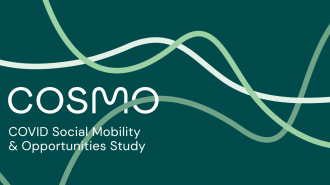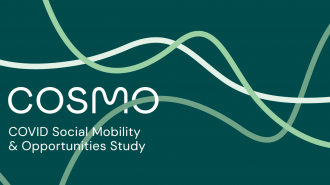
- Our studies
- Our research
- Publications and resources
- Data access and training
- About
- News
- Events
- Get in touch
- Join our mailing list

Welcome to our news and blogs section. Here you’ll find the latest developments and insights from across our longitudinal studies.
Young people from more deprived neighbourhoods have to wait up to 15 minutes longer for accident and emergency (A&E) treatment than their more advantaged peers with similar healthcare needs, according to new findings from Next Steps.

Data from Wave 2 of the COVID Social Mobility and Opportunities (COSMO) study is now available to researchers interested in exploring how COVID-19 and the cost-of-living crisis has affected the lives of 17-18-year-olds across England.
This webinar gives an overview of the data available on care and research opportunities in the four internationally-renowned cohort studies run by the Centre for Longitudinal Studies (CLS).

Up to 34% of A-level students are considering living at home if they get into their preferred university next week, according to new UCL and Sutton Trust research, using data from the COVID Social Mobility & Opportunities (COSMO) study.
This short webinar gives first-time users and researchers less familiar with the Millennium Cohort Study (MCS) an insight into this unique longitudinal cohort dataset born at the turn of the century.
This training webinar gives first-time users and researchers less familiar with Next Steps an insight into this unique cohort of ‘millennials’ in England.
Around half of all young people who reported experiencing long COVID felt they had fallen behind their classmates due to the COVID-19 pandemic – with almost three in five saying that they had not caught up with lost learning – according to new research involving UCL.

Poor mental health among young people (aged 16 and 17) has increased by more than a quarter since 2017, according to new research by UCL and the Sutton Trust, using the COVID Social Mobility & Opportunities (COSMO) study.

Four in five students report that their academic progress has suffered, and two thirds say their future educational plans have changed due to the pandemic.
Watch again: this webinar gives first-time users and researchers less familiar with Next Steps an insight into this unique cohort of ‘millennials’ in England.

Women who are the first in their family to graduate from university earn 7% less in their mid-20s compared to female graduates whose parents attended university. In contrast, first generation male graduates tend not to face a similar pay penalty.

This project aims to examine the relationship between people’s physical and mental health and their educational and employment prospects, both across the lifecourse and between generations using data from five longitudinal studies.
Ryan Bradshaw
Senior Communications Officer
Phone: 020 7612 6516
Email: r.bradshaw@ucl.ac.uk